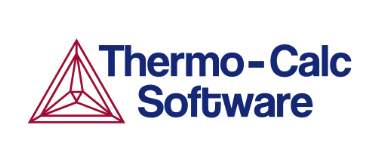|
Issue 52
Stay informed about what's happening on nanoHUB! Check out upcoming online workshops, featured resources, new tools, and more below. Upcoming Events
Thermo-Calc workshop
Join us for our upcoming Thermo-Calc workshop! You will learn how industrial soldering practices can be contextualized into current engineering classrooms to provide students with situated learning experiences and how Thermo-Calc can be utilized as an effective self-learning or teaching tool to solve real-world engineering problems relevant to solders.
Title: Integrating microelectronics contexts into engineering classrooms: Thermo-Calc online tool for the design of solder materials
Date: Wednesday, May 11, 2022, 1:30 - 2:30 p.m. EDT
Presenter: Congying Wang, Ph.D., Postdoctoral Associate in the School of Materials Engineering at Purdue University
Recitation series using nanoHUB tools for semiconductor education and workforce development
We invite everyone with an interest in nanoHUB's semiconductor simulation tools to join the upcoming sessions in our Recitation Series using nanoHUB Tools for Semiconductor Education and Workforce Development.
The objective of this recitation series is to enable faculty to enhance existing or new semiconductor classes with interactive simulations on nanoHUB. Click the link below to register for our next session on the Drift-Diffusion Lab with Bias and Light or visit the Recitation Series page to browse other topics.
Title: Recitation Four - ABACUS Overview & Drift-Diffusion Lab with Bias and Light
Date: Monday, May 2, 2022, 10:00 - 10:45 a.m. EDT
Free Educational Resources
Machine learning and data science series
Interested in machine learning? Check out the nanoHUB Data Science and Machine Learning Training Series. This set of workshops introduces users to important concepts and techniques in data science and machine learning in the context of engineering and physical sciences applications.
All workshops include video tutorials and hands-on activities, where users can apply learned techniques to solve real problems using free online resources at nanoHUB, no need to install any software. Visit the Data Science and Machine Learning page to access all tutorials and check back regularly for upcoming workshops.
Tips and Tricks for Spring Cleaning in nanoHUB
How to clean up your nanoHUB file space
Did you know? Managing file space in nanoHUB is easy! If you're running out of file storage, check out this short video tutorial to learn three ways to clean up your nanoHUB file space:
- Using your nanoHUB dashboard
- Using a Jupyter dashboard
- Using a Jupyter terminal
Update your nanoHUB profile
Get the most out of your nanoHUB account by regularly updating your profile information. Keeping your profile up-to-date helps ensure you are receiving the latest information on nanoHUB events and other activities. It also allows you to display your latest accomplishments, if you have a public profile page.
To update your settings, make sure you are logged in to your nanoHUB account. Next, hover your cursor over "logged in" in the upper right-hand corner of the page and select "profile." From your profile page you can update your email address, organization, communication preferences, Google Scholar information, ResearchGateID, and much more! New on nanoHUB
This new resource is a Python-based tool for Solid-solution Strengthening prediction for complex-concentrated alloys. It can be easily installed on the high-throughput computation resources and integrated with TC-Python for designing high-temperature high-strength structural materials.
This tool provides an interface to input the oxidation data of refractory alloy samples and creates a database. It also takes the mass gain vs time data and outputs the models that best describe the oxidation mechanism.
If you are interested in further exploring what's new nanoHUB, you can find all new resources as they are published on our What's New page. New resources are added each week.
|



